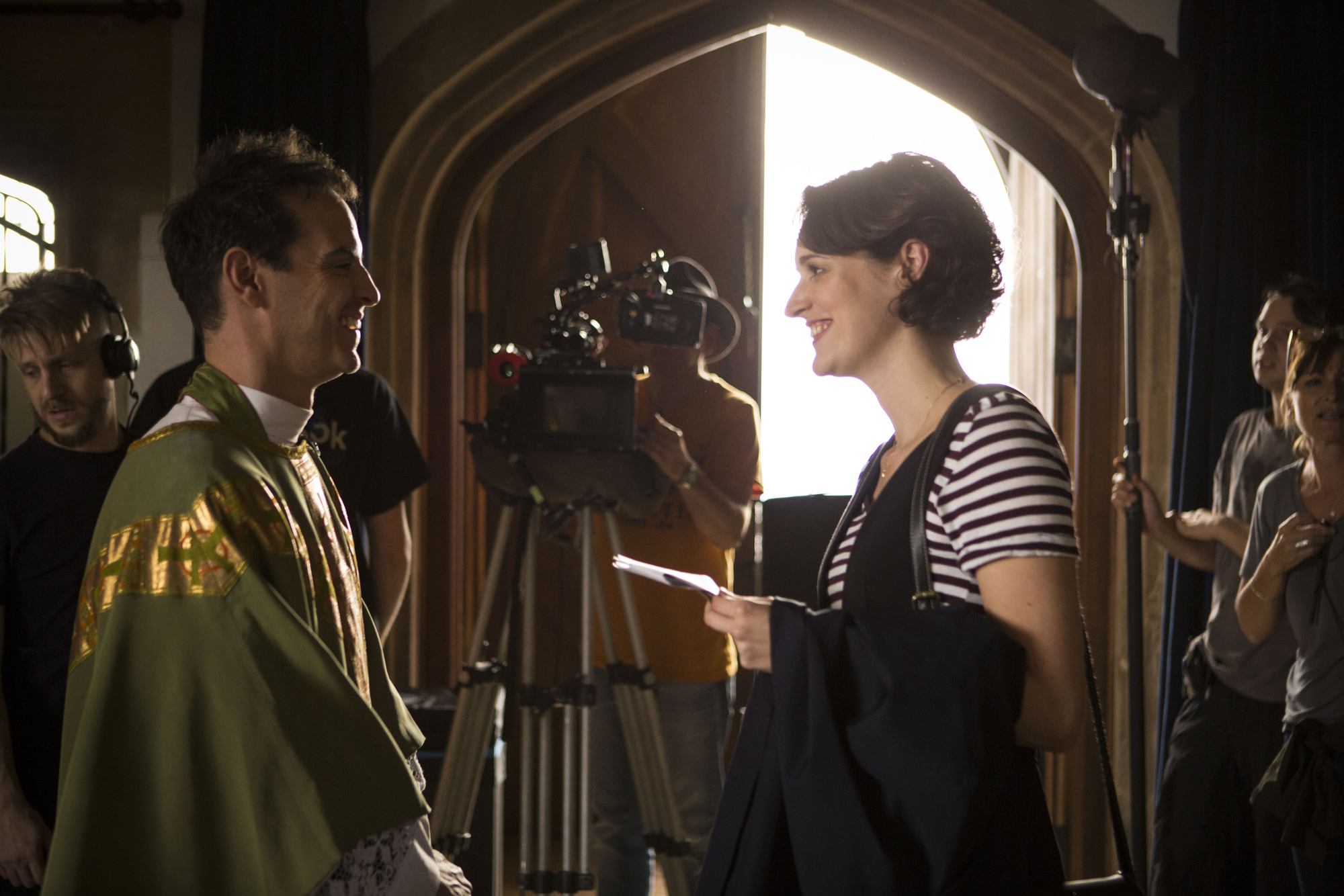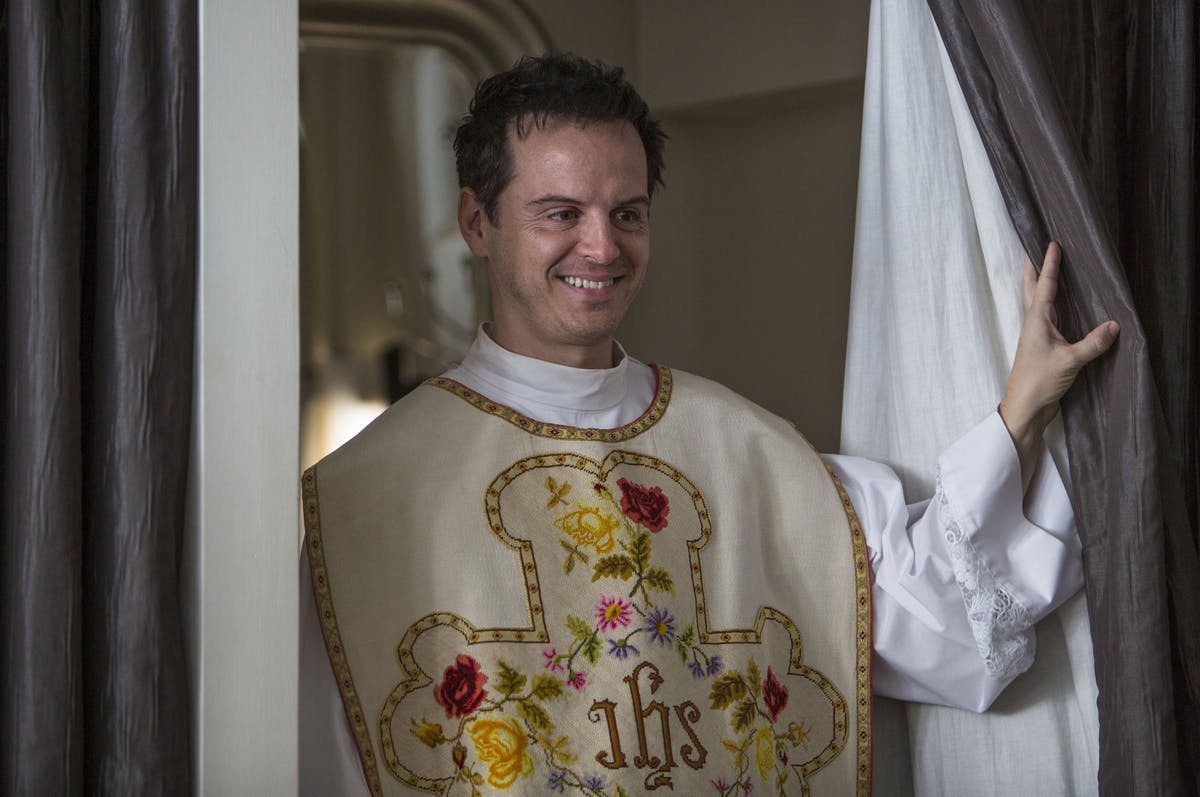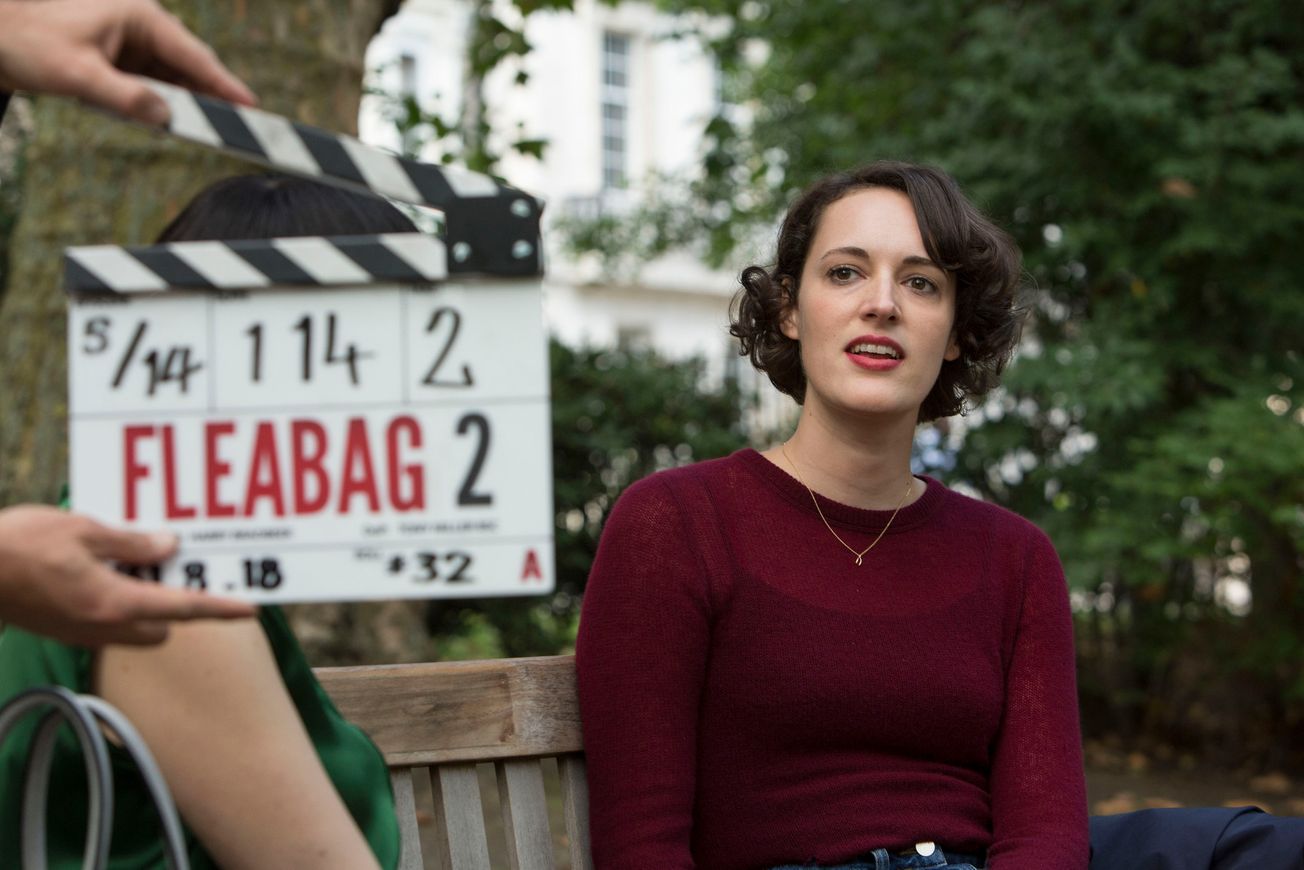By Caitlin Danaher, Third Year, English
Phoebe Waller-Bridge’s series makes brave choices not to simply please its audience, whereas other shows have made the mistake of trying to produce too happy an ending.
It’s been two weeks since the astonishing finale of Fleabag (2016-2019), in which Phoebe Waller-Bridge’s succinct twelve-part series ended in spectacular, hilarious and heartbreaking fashion. Whilst some of the dust has settled and we can maybe listen to Alabama Shakes’ ‘This Feeling’ on public transport without the certain risk of uncontrollable sobbing, the effects of Fleabag’s beautiful ending, equal parts melancholic and hopeful, are still reverberating.
Collective hearts broke when Sian Clifford (who plays Fleabag’s hysterically highly-strung sister Claire) announced just before the finale that this series of Fleabag would be the show’s last. As the final episode aired, Twitter transformed into an assortment of sorrowful lamentations and passionate questions: What will Fleabag do next? How can we live without her? Did Claire and Klare (Christian Hillborg) reunite in the Boots of Terminal 5 over a pair of tweezers?!
Whilst the romantics among us may have felt initially deflated by the ending, when Fleabag’s love is ultimately rejected by the Priest in favour of God, it can’t be denied that the conclusion given to us is the most fitting for Fleabag. As Andrew Scott’s Priest asserts in his heart-rending speech about love: ‘It takes strength to know what’s right.’ By withholding the traditional romantic ending from the audience, Waller-Bridge courageously opts for the poetic rather than anticipated finale, not giving us what we wanted, but what her troubled protagonist needed.

Photo courtesy of BBC
At a family gathering last weekend, the ‘will they, won’t they’ conundrum between Fleabag and the Priest dominated conversation. Even the most pious of my Catholic aunts and uncles were vying for the Priest to hang up his cassock and ditch the priesthood for a lusty life with Fleabag. Yet deep down we all knew that this romance was a doomed one. That’s not to say that, when the Priest says of Fleabag’s love, ‘It’ll pass’, it doesn’t feel like any less of a punch to the gut. The acknowledgment of mutual but incompatible love is one of the most truly devastating television moments in memory. Yet, in all its sadness, the ending given to us is the best possible conclusion.
Last month, a Twitter thread by cartoon writer Zac Gorman went viral, discussing how a bad ending can ruin the overall story of a tv show. Drawing on Kurt Vonnegut’s notion of the ‘Shape of Stories’, Gorman stated: ‘If you were to draw a story curve, in general a happy ending is one where the characters end up better than where they started but really not too much better.’ Citing the finale of Parks and Recreation (2009-2015) as an example of a failed ending, Gorman argued that a successful finale is not necessarily one where all loose-ends are tied up, every good character is rewarded, and their lives become perfect. Rather, success lies in what he terms ‘the Evergreen Ending principle’, where the ending facilitates the main characters to have an afterlife beyond the script, and the power over the narrative is transferred from the writer to the audience's imagination.
"A real happy ending is knowing the characters are going to be okay.”
— HuffPost (@HuffPost) 31 March 2019
Writer Zac Gorman unpacks what it is that makes or breaks the finale of a TV series. https://t.co/599eEpwc7a
Many television shows have fallen into the trap of trying to create a satisfying ending for the audience, but inadvertently creating something so out of joint with the overall tone of the series that it negatively colours our previous experience of the show. For some series, this failure comes down to the inability to ‘quit while you’re ahead’. Arguably, Sherlock (2010-2017) reaches its apex in Series 2 and struggles to progress once Sherlock’s nemesis Moriarty (instilled with electrifying evilness by Andrew Scott) is killed off.
For Parks and Recreation, the show backs itself into an undesirable corner when Leslie becomes pregnant with triplets, to the extent that the final series is set in the future to ensure Leslie could get back to work and continue with her comedic capers. As one frustrated Twitter user made clear, the fierce optimism so essential to Parks and Rec and its protagonist is arguably pushed a step too far in the final series, forcing the show to become totally unbelievable and lose the small-town essence that had initially made it so popular.
Parks and Rec finale was annoying bc what I liked about the show was that it was about regular people struggling to make a difference in small town local government, and ended with everyone becoming extremely wealthy celebrities who get everything they want effortlessly
— magsnowlia (@MagnoliaPearl) 28 March 2019
Other shows, such as New Girl (2011-2018) and The Mindy Project (2012-2017) are so heavily driven by their respective ‘will-they, won’t-they’ romances, that they lose momentum once the couples finally get together. In New Girl, Nick’s unlikely relationship with a super-hot businesswoman (played by Megan Fox) never really generates the intended tension, since the couple are at no point convincing. Thus, the reuniting of Jess and Nick becomes blandly inevitable.
In The Mindy Project, the relationship between Danny and Mindy is derailed by the arrival of their first baby, which reveals uncomfortable truths about Danny’s deep-rooted misogyny. Instead of encouraging Mindy to achieve success in her career and open her own practice, Danny scolds her for not spending enough time with their son and even attempts to impregnate her without consent. In both cases, the once irresistible chemistry becomes sterile and predictable, and the lovable male characters morph into something more uncomfortable and dislikeable.

Photo courtesy of BBC
With Fleabag, we are not given the desired ‘happy ending’ of a romantic comedy. The Priest does not give up his vocational calling to the Church for love. Nor, as the episode enters its dying seconds, do we see the Priest chase after Fleabag, having realised his mistake. Yet we also don’t see Fleabag walking dead-eyed and broken hearted towards more acts of self-destruction, as we have previously seen in the first series’ finale. Through her relationship with the Priest, Fleabag finally meets her equal, in wit and messiness, who can see through her humorous attempts to distract from the ‘screaming void inside her empty heart’, as she herself put it.
The Priest’s recognition of her deflection provides Fleabag with the necessary conflict to confront this damaging internal quality and enable her personal growth. With Fleabag’s final wave to the camera, the audience, who have been privy to her witty observations, self-deprecation and ultimately displaced grief, are left behind, signalling a consolidation of her mourning and an overcoming of her devastating guilt. As Gorman argues, ‘A real happy ending is knowing the characters are going to be okay. That they’ve finally found a little bit of balance and ended up better than they started. That who they are is good enough and always has been. And that they can handle whatever comes next’. Whilst we may not have been ready to say goodbye to her, we can be comforted in the fact that after all her hard times, Fleabag is finally going to be alright.
Featured Image Credit: Photo courtesy of BBC
What did you think of the final season of Fleabag?
Facebook // Epigram Film & TV // Twitter







